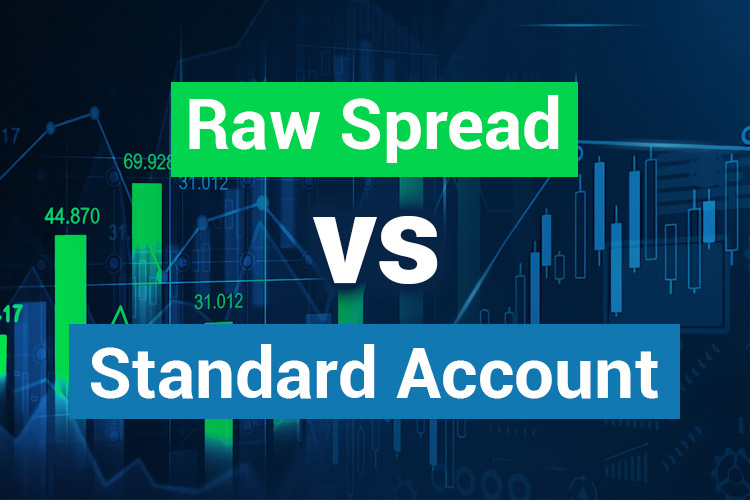Which is better, the original spread account or the standard trading account??
The main difference between the original spread account and the standard trading account is the transaction cost, i.e. spread and margin.。
The main difference between the original spread account and the standard trading account is the transaction cost, i.e. spread and margin.。

Many forex brokers today offer multiple types of trading accounts, the two most popular products are the original spread trading account and the standard trading account。
In fact, each forex broker may have different terms and conditions for its trading account, making it difficult to choose an account type without knowing which broker to open an account with。
However, if you are a scalper, a raw spread account may be better; if you are a swing trader or a position trader, then a standard account may be recommended。However, in addition to these specific terms, we can also compare the original spread with the general situation of the standard account.
Comparison of original spreads with standard accounts
Please review the following table to simplify your understanding of raw spreads and standard account types:
| Original spread account | Standard Account | |
| asset price | actual market price | Added markup fees for brokers |
| Point difference | Very low or even 0 | usually higher |
| Margin | tend to be higher | lower or even 0 |
As you can see from the table above, the original spread trading account (also commonly referred to as an ECN account) provides real market prices for all instruments。Forex brokers do not mark up asset prices, so spreads are usually very low or even zero。
However, traders must pay a higher commission for each trade。Some forex brokers charge a fee for each open and close trade ("per party"), while others may charge a fee after a full round。
Standard trading accounts offer asset prices that have been added a certain amount of markup by the broker, spreads are usually higher, and commissions per trade are cheaper or even free。
For example, suppose you want to buy at a current trading price of 1.2100 EUR / USD。If you have an original spread account, you may be able to.Buy at 2100。Once the price rises to any level, you can close your position and make a substantial profit (although you must ensure that the gain also offsets the commission)。If you have a standard trading account, you may only be able to pay the asking price of 1.2102 purchase, which means you will lose 2 points as soon as you enter the transaction。
This is what everyone calls the spread.。In order to end trading in green, EUR / USD must rise by at least 3 points。Even so, your profit will always be 2 points less than it should be。
The spread calculation is usually automatic, so you don't have to calculate the spread every time you open a position。
The broker's original spread and standard account.
You can compare the spread and commission fees charged by the broker of your choice to ensure which one will result in a lower cost for your trading strategy。
Take, for example, IC Markets, which was a pioneer in popularizing the term "raw spread" worldwide.。This Australian licensed forex broker offers original spread trading accounts with spreads starting at 0 pips and commissions of 3 per standard lot..0 USD。
IC Markets also offers standard trading accounts with zero commissions, with spreads from 1.From 0 o'clock。Both can be opened with a starting deposit as low as $200。
Its Australian forex broker Pepperstone also offers raw spreads ("Razor accounts") and standard accounts for retail traders.。
Pepperstone's Razor account offers institutional spreads with no mark-up (EUR / USD average spread of 0.0-0.3 points), commissions start at $7 per 100,000 transactions per round; standard account fees are approximately 1.0-1.3 points, zero commission。
Which is better?
Each trader may have a different view depending on their trading style。If you are a scalping trader and need to profit from small changes in asset prices, a raw spread trading account may be more appropriate。
But if you are a swing trader or a position trader, a standard trading account may be more advantageous。In fact, using a longer-term strategy gives you more freedom when choosing a trading account; you don't have to choose the one with the most accurate pricing, unlike short-term strategies that rely heavily on it。
Disclaimer: The views in this article are from the original Creator and do not represent the views or position of Hawk Insight. The content of the article is for reference, communication and learning only, and does not constitute investment advice. If it involves copyright issues, please contact us for deletion.